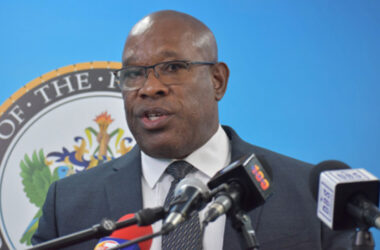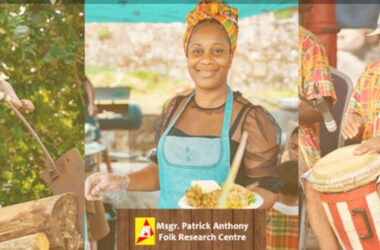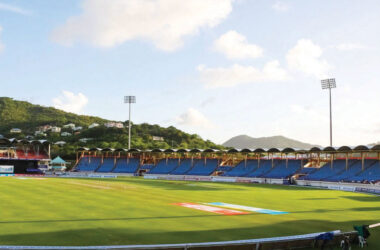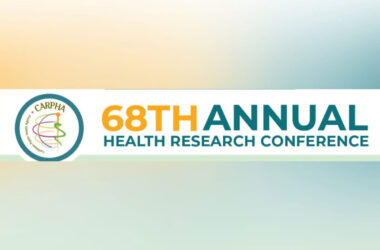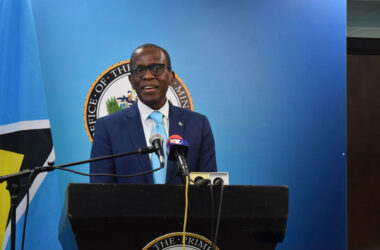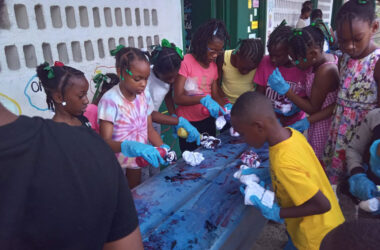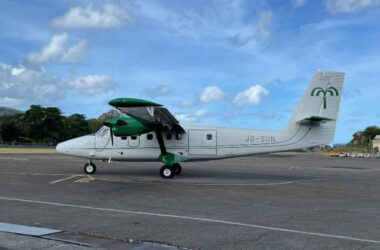Prime Minister Allen Chastanet has called for “deeper regional integration” as the islands seek for ways to preserve its ‘Blue Economy’, in light of the current COVID-19 pandemic.
PM Chastanet was a feature speaker at the recent World Economic Forum’s Davos Agenda 2021. The event brought together heads of state and government, business, cultural and other leaders of society to shape global, regional and industry agendas for inter-active discussion
The Davos Agenda, an annual event for world leaders, was held virtually this year from January 25-29 with 1,500 global leaders under the theme: “A crucial year to rebuild trust.”
PM Chastanet headed the Devex Session on Wednesday January, 27 where he sought to provide leadership and insight on “Catalyzing a new future: From Small Islands to Great Ocean States.”
The session’s participants also included a high level delegation panel of experts in the science field, including; Dr. Graham Turnock, Chief Executive, UK Space Agency.
In midst of the global pandemic, the prime minister forwarded a case “to capitalize on the opportunity to reset the economic system and build one that incentivizes sustainable and inclusive economic growth with strong private sector participation.”
Prior to the event, PM Chastanet had explained that Saint Lucia is paving the way for scalable local solutions to raise funds towards achieving the Sustainable Development Goals.
“Ambitious targets are necessary to ignite change that supports Small Island Developing States (SIDS) and other emerging economies to adopt new and innovative funding mechanisms. Sustainable development and long-term resilience will require regional cooperation and integration to amplify our collective impact,” said the prime minister.
He added: “The start of 2021 on one hand shines a ray of possibility and hope for positive change in many areas of global concern. On the other hand, there is an intensified feeling of urgency and a growing imperative to develop and enact sustainable development solutions across thematic areas.
The prime minister added that “In Saint Lucia and beyond, the existing consequences of COVID-19 have carried over, hand in hand with reports of a new and threatening coronavirus variant, reiterating the importance of identifying needs for post-pandemic survival and preparing for unexpected changes.”
What has the pandemic meant in terms of adding an additional layer to an already challenging picture as the leaders try to chart a path towards the economic development of their country?
“It has been pretty catastrophic,” declared PM Chastanet, adding that “tourism is 40% towards our GDP, 65% would include all the other indirect sources, and 85% for foreign exchange.
“This came upon us suddenly and by the end of March, globally …everybody had instituted quarantines for travel back to their country and that meant that flights stopped.”
The prime minister said there has been a drop of about 50 % in the economy, while “unemployment increased significantly and probably the biggest one is the amount of bonds we had to make quickly to make up that tax revenue shortfall”. These issues, he said, has certainly weakened the country’s debt to GDP and the economic numbers show a figure from 59 % to 85% in a matter of ten months.
How is the country to deal with the numerous challenges being faced, such as natural disasters, building resilience and the current pandemic?
PM Chastanet noted that amongst the major climate challenges, is the issue of building resilience, noting that adaptation is a critical component, since “financing that adaptation has come from our own resources …and because for many of us, our per capita per GDP is high enough that we are excluded from getting access to ODA funds.”
On the issue of mitigation, he said, the onus is on reducing carbon emission.
PM Chastanet explained: “The SIDS, there are about 44 of them and (make up) less than ½ % of the emissions globally, but yet we’re being asked to reach the same standards as everyone else.”
“We are investing money into both adaptation and resilience,” he said, noting that the returns on that investment is insufficient and “we are accumulating debt on our account and getting the requisite economic activity to help us grow to recover some of that debt.”
What is the vision and what sort of ‘roadmap’ can be planned to help other SIDS countries cope, moving ahead in this global ‘scheme of things’?
PM Chastanet asserted : “ I think there needs to be a ‘sit down’ to reengineer how we’re going to treat Small Island Developing States in the global context; that would include the IMF, World Bank , and the UN …”
While commenting that the process may be viewed as “an impossible task,” the prime minister was optimistic that still “there is a lot that we are contributing towards the development of the world.”
In contextualizing the concept of an overall thrust towards sustaining livelihoods from the ‘Blue Economy’ for the region’s developing states , Chastanet said : “ Preserving and maintaining our ‘Blue economy’ will play a very important role in that and we need resources to be able to do that .”
Also, he continued, “even on our own we have to develop a ‘Sink Fund’ …and so we must have an amount of ‘Sink Fund’ available to deal with these exogenous shocks.”
How can SIDS band together to take on these global challenges that confront them?
The prime minister said it word require a ‘disciplined approach’ and the ability to develop the reserve funds , whether on a national basis or on a regional integration process with the OECS, CARICOM and “the wider body of SIDS where we are pooling monies together so we can help ourselves out.”
Chastanet noted though, that: “Certainly integration is critical and the fight always is sovereignty …for instance on the issue of foreign exchange – each state wants to have their own foreign office”, for representation on global affairs. But, he says, “the time has come for us to see where we can share that cost, as there are lots of things that we’re doing in repetition.”
The prime minster said efforts must be made to help provide more effective governance and thus reduce state expenditures on overseas travel.
He declared that there has to be deeper regional integration, questioning how SIDS can utilize the liquidity in their commercial banks, ”
Noting that coming out of the pandemic “the digital world is going to take off,” Chastanet quipped: “And how do we get persons confident about investing in these new areas.”



